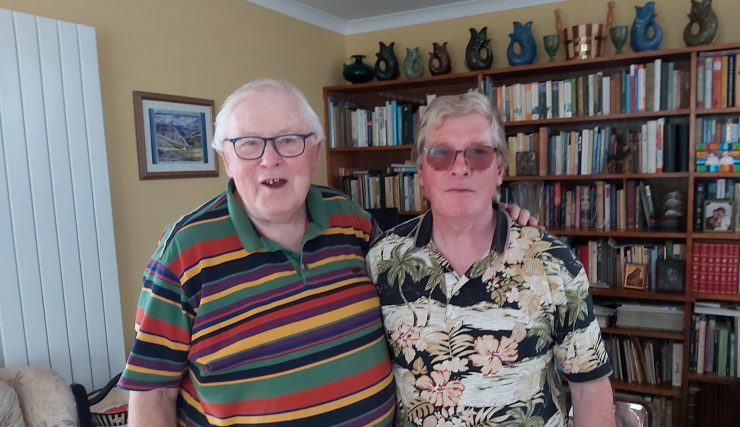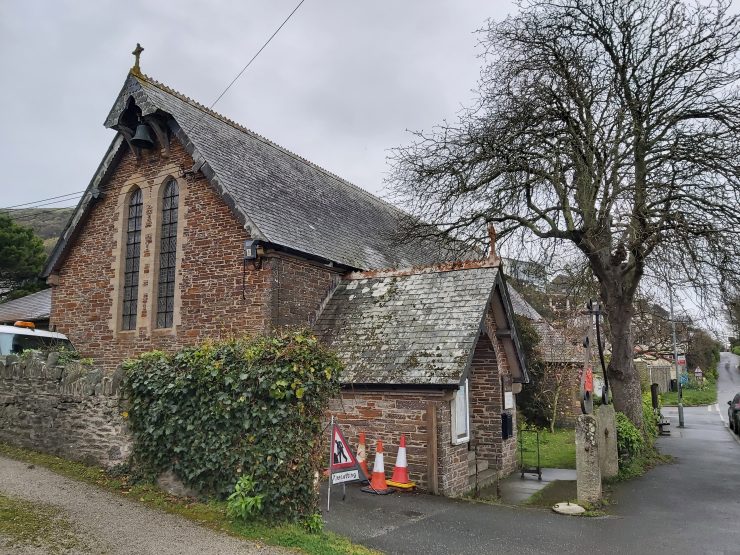A good Cornish guy from the Orkneys
“The older I get, the more I feel like the Old Man of Hoy,” he laughs.
Born on the island of Hoy in the Orkneys the year the war ended, David Watters had flirted with the idea of ordination from a young age.
“I felt a call to some form of ministry when I was in my teens,” he explains. “But I chose to follow the old adage: if you can do anything else don’t get ordained.”
Instead, we went to work for four years for the Church of Scotland as a lay parish assistant in Crieff, Glasgow, the North West Highlands and finally Edinburgh.
“But I always hankered after doing something much more hands-on,” he says.
So, he relocated to London, where he took a job working with homeless and rootless people, at the Church of St Martin-in-the-Fields on the northeast corner of Trafalgar Square.
He moved on to work for housing agencies in London, and then for the UK Haemophilia Society, and latterly for an organisation focused on inherited disorders of the immune system.
It was while living in London that he met Tim. They met in church more than forty years ago, and have been together ever since. They were married in 2014.
“We got married the first year that we could,” says Tim.
They’d had a house in Landrake since the 1990s but moved permanently to Cornwall in 2005. They now live with their dog Robbie in the village of Downderry on the county’s southern coast, overlooking the sea, where Tim serves as a member of the Parochial Church Council and David performs his duties as the local lay reader.
“I retired when I was sixty and made the best decision of my life – to come here,” David says. “And suddenly, apart from a bit of consultancy, I had nothing much to do.”
He felt he was too old to start thinking about ordination and chose instead to take the three-year course to become a reader, which he completed in 2008.
That status now allows him to preach, to conduct funerals, to make pastoral visits and to administer home Communion.
“That’s the formal side of things and that’s all fine and good,” he says. “But it’s not grappling with the issues of the community, which is what I saw Jesus had done. The greatest satisfaction I’ve had in this role has been that direct community involvement – keeping a finger on the pulse of the local community and seeing where there are gaps that the church can fill – whether that’s leadership roles for myself or other local Christians, or just helping out and getting to know people who are isolated and vulnerable.”
He feels particularly proud of the work the church has achieved in partnership with the primary school in Downderry. They started a programme during the pandemic to raise funds, thanks to the generosity of local parishioners, to provide food boxes and even laptops to families most in need.
“It’s about showing people that the Church isn’t about itself and its own ends but about loving and caring for those in need,” he says.
Growing in faith
He’d come to faith as a teenager, at what he calls a “road-to-Damascus” moment of epiphany one Christmas in the early 1960s. But, even now, his faith isn’t something which he’d ever take for granted.
“Barring one or two lapses, I’ve been maturing as a Christian ever since then,” he explains. “I firmly believe that if your faith is the same today as it was last month, then you need to look seriously at it, because God always has new ways to teach us and to tell us about the ways we should meet, greet and form relationships with the people we encounter. The one constant of that faith is change and growth. Faith is the creator of the dreams that become a reality of care and love.”
He believes that anyone thinking of starting upon the journey of lay ministry should first carefully consider what that means.
“They should think about what their faith has to say in their local community,” he says. “Long gone are the days when the Church could exist only for itself. These days, it’s got to be a place of inclusion, welcome and enthusiasm for the Christian life – just as Jesus showed us.”
After nearly two decades living in Cornwall, David was recently, as he puts it, “really chuffed” when a local family asked him to conduct their father’s funeral and said they’d chosen to ask him because he was what they called a good Cornish guy.
“A good Cornish guy from the Orkneys,” he smiles, his soft Scots accent still strong.



